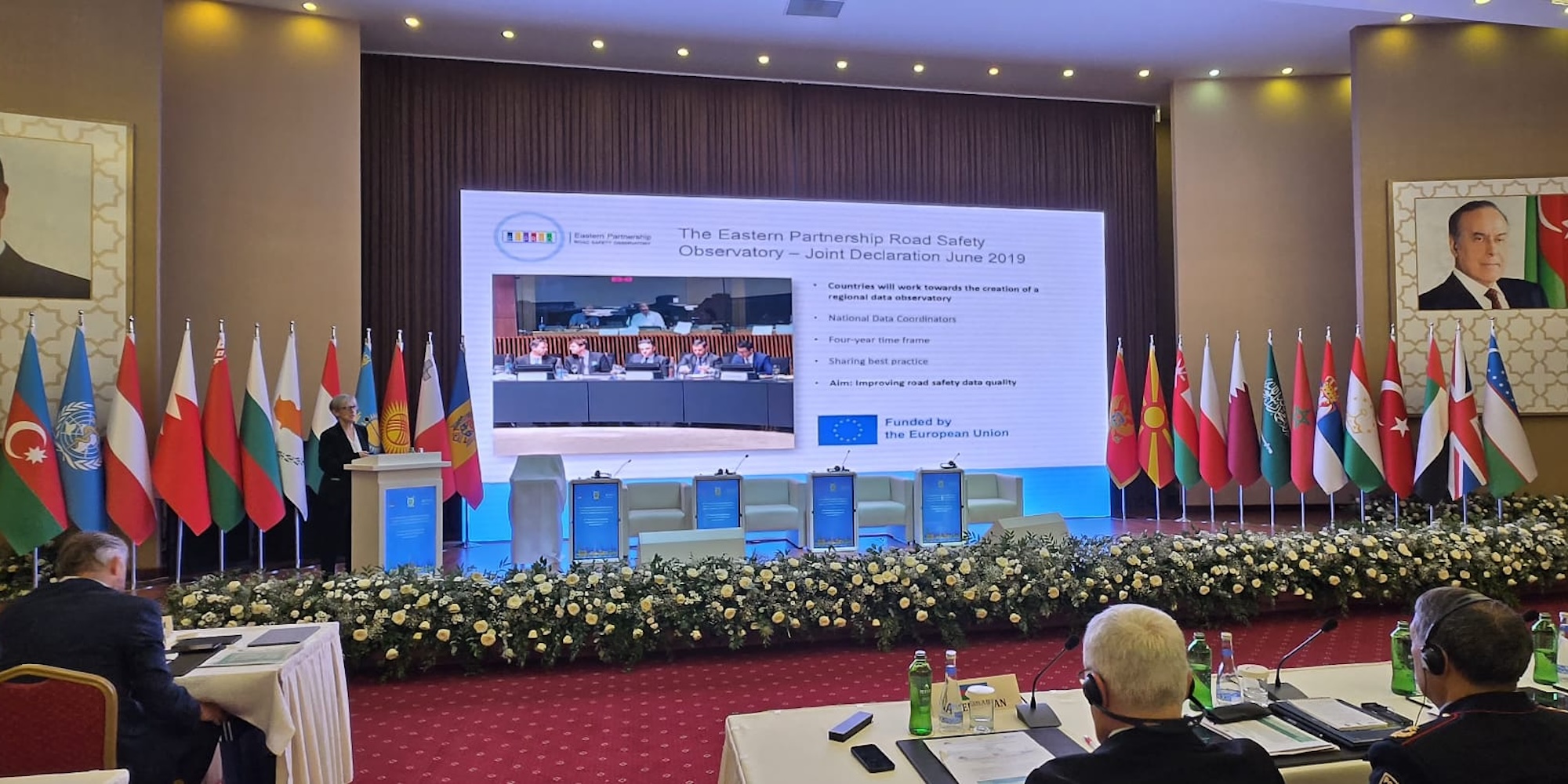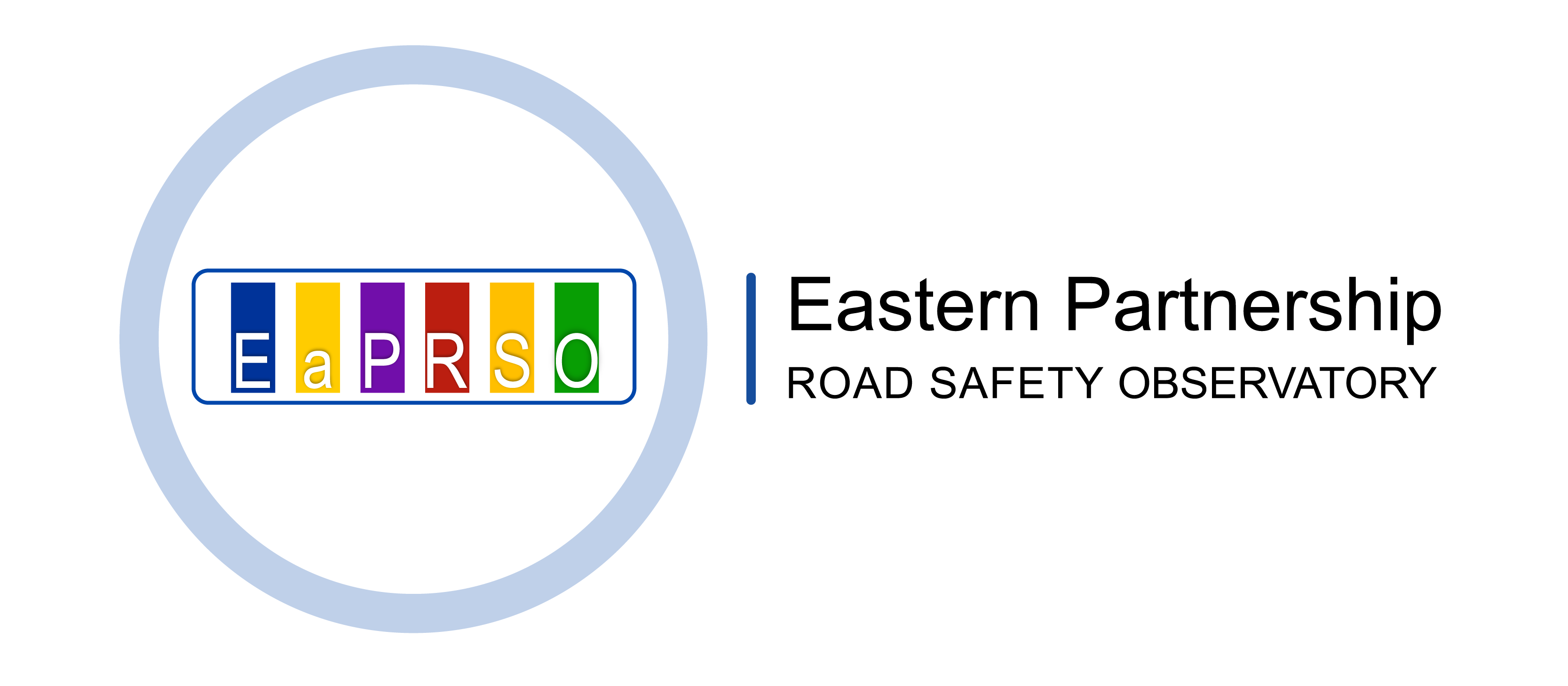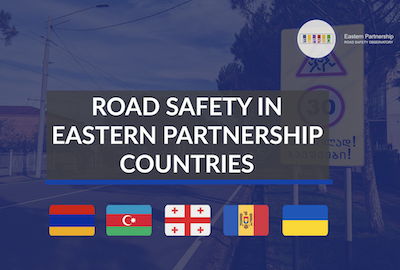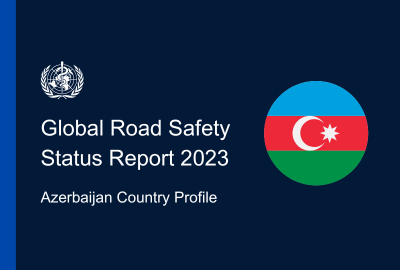
On 10-11 December 2024, the WHO and Ministry of Internal Affairs of Azerbaijan hosted the second high-level meeting on road policing in Baku. The aim of event was to bring together a regional network of European Traffic Police Organisations to improve road safety enforcement.
The two-day event consisted of eight sessions, two panels and nine presentations addressing the key challenges in road safety, innovative solutions for reducing serious crashes, public engagement, and the use of technology in road safety management.
Deputy Head of the EaP RSO Technical Secretariat, Emma MacLennan, and Senior Data Specialist, Egidijus Skrodenis, were invited to join the meeting to present on the importance of data in policing and importance of the police in data collection.
The conference was opened by Azerbaijan’s Police Lieutenant Colonel General Ogtay Karimov who emphasised the importance of international cooperation in learning best practise and leveraging new technology. While Jonathon Passmore of WHO Europe talked about the critical role of policing in crash prevention.
Discussions on the first day centred on the important role of international alliances and networks for road policing. Lieutenant Colonel Elvira Zsinkai, President of RoadPol, noted that physical police presence remains crucial in preventing road crashes and reducing injury severity, and should be used alongside technological developments. From the perspective of the EaP RSO, we were keen to show how technology and data can inform and aid on-the-ground enforcement
On the second day, discussions focused international standards, infrastructure, speed, and data. In her presentation, Emma MacLennan outlined how using the Common Accident Data Set (CADaS) framework can assist policing by identifying local and general risk factors. Pointing out that with good data, traffic police can predict when and where dangerous behaviour, such as speeding or drink-driving, is likely to occur. Prevention measures can then be put in place either through strategically deployed enforcement or infrastructural improvements.
Egidijus continued the presentation by demonstrating how useful a data-driven approach to road safety has been in the context of Lithuania, one of only 10 countries to have achieved the UN Decade of Action on Road Safety target of reducing road deaths by 50% between 2011-2020. He outlined the development traffic crash information systems, examples of integrated structures for data collection and retrieval, and the base level systems needed to collect good data. He also provided insight into software solutions for black-spot detection, spatial mapping of data and cost-benefit analysis of road safety measures, which were gratefully received.
The EaP RSO presentation kicked off a wider discussion on data collection practices and the gaps in available data that would be useful for policing. Many representatives at the meeting expressed support for using the CADaS framework, but noted that, in practice, data is still often incomplete or inaccurate.
This highlighted one of the challenges facing our work. But through engaging enforcement agencies and granting them a stake in data collection, the EaP RSO is hopeful that police departments across the region can spearhead good data collection practices and set an example for others.




